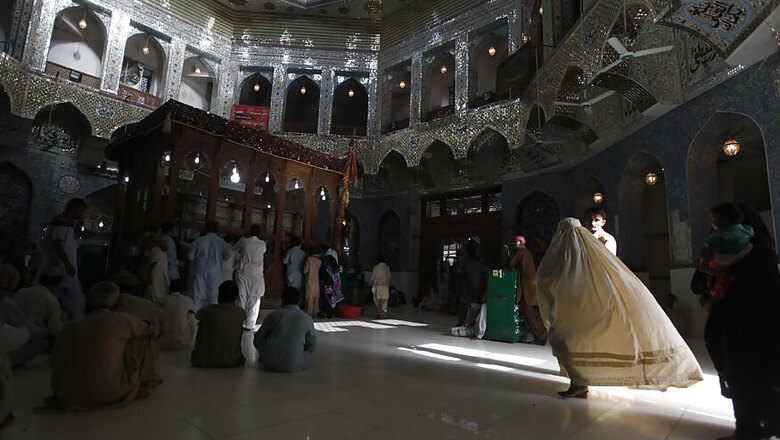
views
New Delhi: The Sufi shrine of Lal Shahbaz Qalandar at Sehwan in Pakistan’s Sindh province which came under attack from Islamic State suicide bombers on Thursday is connected to a qawwali which is very popular in India - Dam Aadam Mast Qalandar
The verses of the Sufi song, or qawwali, were written in the honour of revered Sufi Saint of Sehwan, Lal Shahbaz Qalandar of Sehwan Sharif in Jamshoro district of Pakistan.
On Thursday, an Islamic State suicide bomber struck inside shrine of Lal Shahbaz Qalandar in southern Pakistan, killing at least 75 worshippers.
The original name of the Sufi saint was Syed Usman Marwandi, but he was later came to be known with his title Lal Shahbaz Qalandar.
Sadia Dehlvi, who has written extensively on Sufism, told News18, "He was a lover of Hazrat Ali and that's why the name of the lyrics were based on Ali. He was also a good friend of Baba Farid, another Sufi mystic."
The most famous quatrain or the stanzas associated with Sufi Shahbaz Qalandar is "Haider-e-um Qalandaram Mastam, Banda-e-Murtaza Ali Hastam, in which the saint expresses his love for Ali, the fourth Caliph of Islam, and the household of Prophet Muhammed .
These stanzas, written in Persian, are believed to be written by Bu Ali Shah Qalandar, a sufi saint of Chisti order.Also Read: Pakistan: 75 Killed in ISIS Suicide Attack in Lal Shahbaz Qalandar Shrine
The Sufi saint was born in around 11th century in the historical city of Marwand in Afghanistan. Lal Shahbaz Qalandar's parents migrated to Indian subcontinent from Baghdad in Iraq.
The Sufi saint is said to be a descendant of the Holy Prophet , from the lineage of Imam Jafar-as-Sadiq, who is also revered by Shia Muslim as their sixth Imam.
In India, as well as in Pakistan, people from different religion and sects regularly visit shrines of various sufi Saints prominent among them Hazrat Nizamuddin Dargah in Delhi, Khwaja Moinuddin Chisti in Ajmer to pray and seek blessings.


















Comments
0 comment